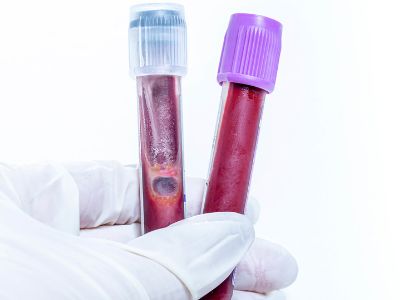Colorectal Cancer

Colorectal Cancer is a type of cancer that begins in the large intestine which is the final part of the digestive tract. This cancer typically affects older adults, even though it can occur at any age. It usually begins as small, noncancerous clumps of cells called polyps that form on the inside of the colon. Over time some of these polyps can become colon cancers. Colon cancer is sometimes called colorectal cancer, which is a term that combines colon cancer and rectal cancer, which begins in the rectum.
Causes of Colorectal Cancer
Colorectal cancer begins when healthy cells in the colon develop changes in their DNA. A cell’s DNA has a set of directions that tell a cell what to do. Healthy cells grow and divide in an orderly way to keep your body functioning normally. However, when a cell’s DNA is damaged and becomes cancerous, cells continue to divide even when new cells are not necessary. The cells form a tumor as they accumulate.
With time, the cancer cells can grow to invade and destroy normal tissue nearby. Cancerous cells can also travel to other parts of the body to form deposits there.

Risk Factors of Colorectal Cancer
- Smoking
- Alcohol
- Radiation therapy for cancer
- Diabetes
- Obesity
- Low-fiber, high-fat diet
- A sedentary lifestyle
- Inherited syndromes that increase colon cancer risk
- Family history of colon cancer
- A personal history of colorectal cancer or polyps
- Inflammatory intestinal conditions
- Older age
Symptoms of Colorectal Cancer
Signs and symptoms of colon cancer include:
- Weakness
- Fatigue
- Unexplained weight loss
- Persistent abdominal discomfort
- A feeling that your bowel doesn’t empty completely
- A persistent change in your bowel habits, including constipation, diarrhea, or a change in the consistency of your stool
- Rectal bleeding or blood in your stool
Several people with colon cancer experience no symptoms in the early stages of the disease.

Diagnosis for Colorectal Cancer
If your signs and symptoms indicate that you could have colon cancer, your doctor may recommend one or more tests and procedures, including:
- Blood tests
- Using a scope to examine the inside of your colon (colonoscopy)
Treatment and Medications for Colorectal Cancer
Treatments for colorectal cancer depends on the severity of the condition, its stage, and your other health concerns. Treatment for colon cancer usually involves surgery to remove cancer. Other treatments, such as chemotherapy and radiation therapy, might also be recommended. Your doctor will also recommend some anti-cancer medications for specific treatment period.



